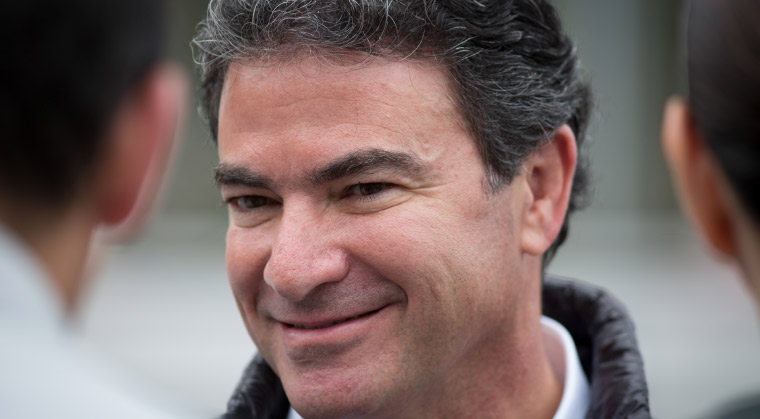Audacity Leads to Advantage


W
ith Prime Minister Binyamin Netanyahu’s PowerPoint presentation revealing one of the most daring operations the Mossad has ever carried out, bringing home the Iranian nuclear archive from a storage facility in the heart of Tehran, Israel spy chief Yossi Cohen has restored his organization’s reputation as the world’s premier intelligence agency.
Cohen, 56, the first Mossad chief to rise to the position from the rank of field operative, is a shadowy figure whose face was until recently familiar to only a few people. He worked for much of his career under pseudonyms, participating in dozens of operations, recruiting hundreds of agents, and traveling the world on countless different passports.
“He has traveled with more than a hundred passports over his life,” his colleagues relate, “but the photo on all of them is the same.”
Since being appointed Mossad chief in January 2016, after serving two and a half years as Netanyahu’s national security advisor, Cohen has spoken out more than once against the Joint Comprehensive Plan of Action (JCPOA) — the “Iran nuclear deal” that the United States, under former president Barack Obama, together with European countries, negotiated with Tehran — calling it a “dreadful mistake.” He has repeated in numerous private conversations that he was “100% sure Iran still intended to build a nuclear bomb,” and that the deal as signed was too weak to prevent that from happening. Furthermore, the lifting of economic sanctions led to “significantly increased aggression” on Iran’s part.
Upon assuming the Mossad helm, Cohen made Iran his number one target — an approach that often put him at odds with other senior Israeli intelligence officials, who wanted to give the deal a chance to work. According to a New York Times report, shortly after Cohen stepped into his role in early 2016, Israeli intelligence received information that Iran was moving to compile and preserve all the documents, diagrams, imaging materials, analyses, and documentation of its nuclear program in a central archive. Those documents had previously been scattered in various locations around the country.
The decision to establish a central archive was a state secret known only at the highest levels of the regime. The Iranians were afraid that the International Atomic Energy Agency (IAEA), charged with enforcing the nuclear deal, would demand access to the sites devoted to the nuclear program. The mullahs sought to hide the documentation not only from international inspectors, but also from their own populace; and to preserve all their research and development until such time when they could resume the nuclear program.
They could have simply housed the archive in an underground bunker on an existing military base, which, under IAEA agreements, would have been out of the purview of the inspections; but they decided that even if they could prevent inspectors from entering a specific army installation, all the unusual activity surrounding it could lead to a security leak. So instead they chose a nondescript warehouse in an innocent-looking civilian industrial zone, far from prying eyes.
The moment Israeli intelligence received information about the archive, Netanyahu approved an operation to locate it. In a departure from standard protocol, Mossad chief Yossi Cohen took personal charge of the operation.
(Excerpted from Mishpacha, Issue 709)
Oops! We could not locate your form.






